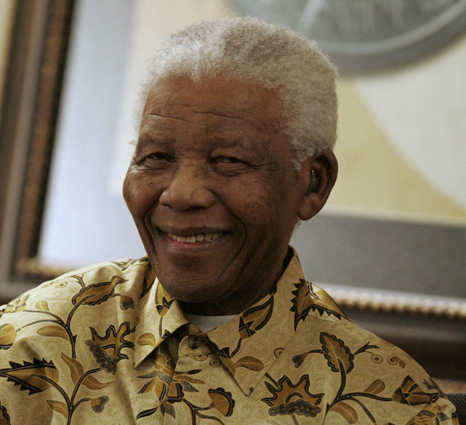‘Troublemaker’ who chose life
By Chris Chivers
Despite being incarcerated for 27 years, Nelson Mandela chose the path of forgiveness, hope and reconciliation. That decision gave South Africa a vision for its own future, a vicar who met him several times in Cape Town writes
 Of all the people who've walked the earth in my lifetime, none has surely made an impression on all of us to equal that of the man known the world over as Nelson Mandela.
Of all the people who've walked the earth in my lifetime, none has surely made an impression on all of us to equal that of the man known the world over as Nelson Mandela.
Nelson was the very British name Mandela was given when he went to the Methodist school that helped to form and shape his many gifts and aspirations. But his ancestral name, the only name that was given to him at birth by his father was Rolohlahla which is Xhosa for “pulling at the branch of a tree”. Colloquially the best translation would be “troublemaker'”.
But in one of my meetings with him as a priest on the staff of the cathedral in Cape Town it was me whom he gently chided as rolohlahla after hearing that I could be a handful. He did so with a twinkle in his eye because I'd been perhaps one of the more vocal members of a group highly critical of what many saw as the low priority his government had placed on addressing issues related to the HIV/Aids pandemic. But as he chided me he added, those eyes still sparkling, “I know we should have done more in Government. I am trying to do it in so-called retirement!”
That vignette says so much about the man the world knew as one of its most necessary and transforming troublemakers. And given his truly global status it would be tempting, following his death, to elevate him from that very human interaction onto a level that befits an icon of all that's best in the human soul. But it's not what he himself would have wished. Better instead ...
Subscribers can click here to continue reading
Take out a subscription now to enjoy this and all The Tablet's content
Buy next week's Tablet for a full assessment of Nelson Mandela's legacy by Rustenberg Bishop Kevin Dowling.
